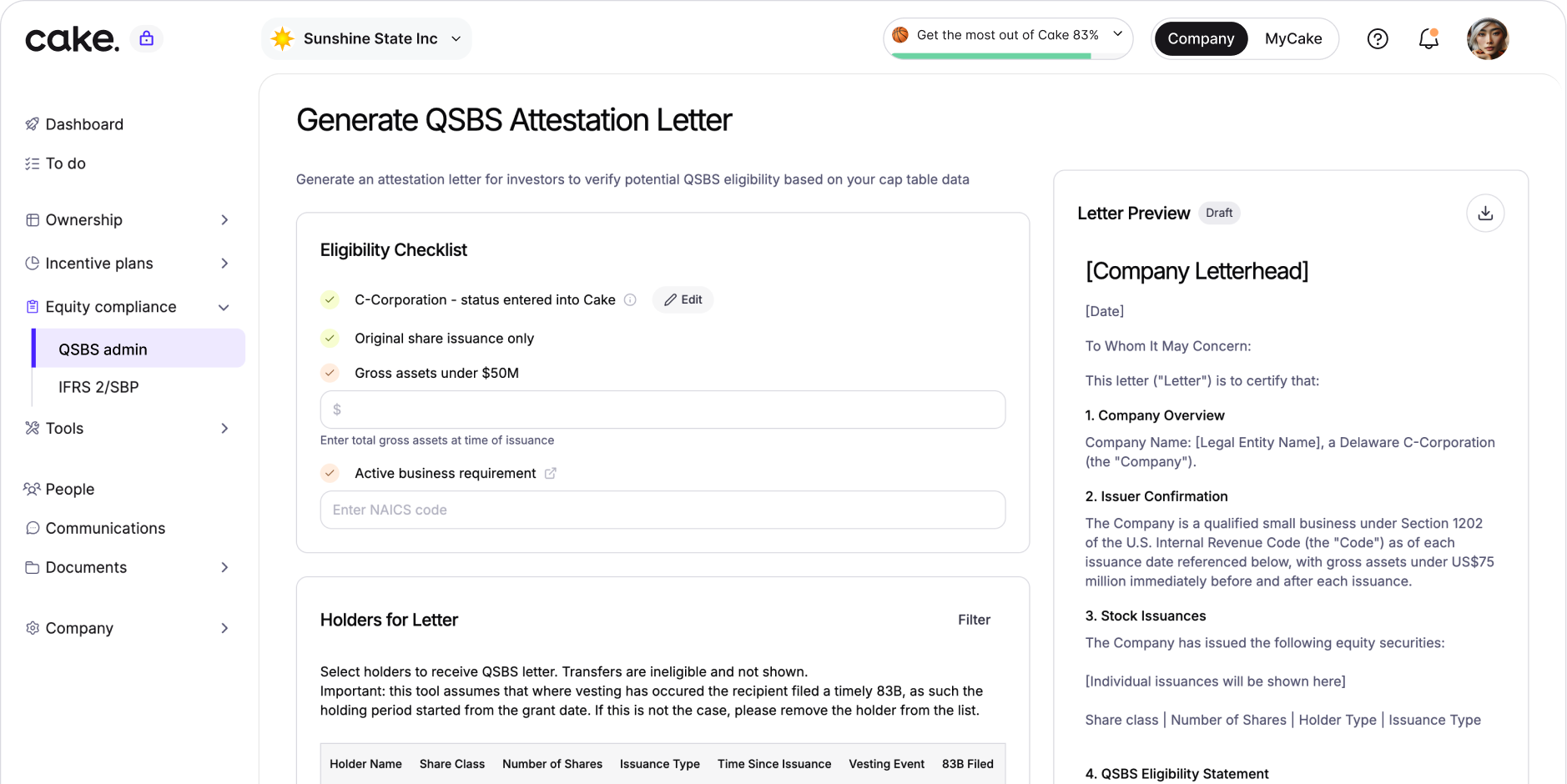

Update, August 2025: Recent changes from the One Big Beautiful Bill Act (OBBBA) of 2025 have made the QSBS benefits even more accessible! Read on.
It's not surprising that we've been getting tons of questions about Qualified Small Business Stock (QSBS).
Qualified Small Business Stock (QSBS) represents one of the most significant tax benefits available to US startup founders and investors, offering potential tax exclusions of up to $10 million or 10 times your investment basis on capital gains.
While these tax savings might seem extraordinary, they're a deliberate incentive created by government to break down the complexities of QSBS and make it work for you.
What is Qualified Small Business Stock?
The Qualified Small Business Stock refers to a special tax incentive under Section 1202 of the U.S. Internal Revenue Code. It allows founders, early employees, and investors of qualifying startups to potentially exclude up to 100% of capital gains on the sale of stock—if certain requirements are met.
QSBS wasn't always the powerhouse tax benefit it is today. When Congress first introduced Section 1202 in 1993, it offered a modest 50% exclusion.
Fast forward to the 2008 financial crisis and the government decided to sweeten the deal. The exclusion jumped to 75% in 2009, and then to 100% in 2010 as part of the Small Business Jobs Act.
Recent updates: the OBBBA effect
With the passage of the One Big Beautiful Bill Act, QSBS has become even more flexible for founders and early employees. The legislation introduces two new tiers for earlier exits:
- 50% exclusion if shares are held for at least 3 years
- 75% exclusion if held for at least 4 years
- 100% exclusion still applies for shares held 5 years or more
This gives founders and early employees more options when planning liquidity events. The change applies to newly acquired stock on or after July 4, 2025, and it may influence decisions about timing secondary sales or acquisitions.
Another positive update: The gross value cap to qualify for QSBS increases from $50 million to $75 million, potentially expanding eligibility for growing startups.
—Shazia Tabasum, Senior Manager of Income Tax
Why QSBS matters in today's startup ecosystem
In an era where startup valuations can skyrocket, QSBS has become increasingly valuable. It's not just about tax savings, it's about making early-stage investments more attractive.
For startup founders and early employees
It helps keep employees committed and engaged when they know that they could potentially keep a significant portion (or all) of the gains from their equity, tax-free.
With the new tiered exclusions, this is now more flexible for founders considering follow-on investments, as well as employees thinking about exercising their stock options at different time horizons.
For investors considering a stake in early-stage companies
The tax benefits can significantly improve the risk-reward equation. Instead of facing standard capital gains tax on successful investments, they could potentially qualify for substantial tax savings, making those high-risk, high-potential opportunities more attractive.
It is important to note that QSBS favor specific industries, specifically, those that scale through products, technology, or processes rather than through individual expertise or services. For example, a software platform that automates legal work could qualify, while a traditional law firm wouldn't.
If you're a startup founder or investor in the technology and software development space, you are more likely to be eligible for QSB status!
How does Qualified Small Business Stock work?
When you qualify for QSBS, you can exclude a significant portion or all of your capital gains from federal taxes when selling your shares, potentially saving substantial amounts in taxes on a successful exit.
QSBS example
Consider this practical example: An initial investment of $100,000 in qualifying stock grows to $5 million over different holding periods:
- 3 years: 50% exclusion on the $4.9 million gain = $2.45 million tax-free
- 4 years: 75% exclusion = $3.675 million tax-free
- 5+ years: 100% exclusion = $4.9 million entirely tax-free
If you meet all QSBS requirements, you could exclude up to $4.9 million gain from federal taxes. If you sell after three or four years, you may be eligible for a partial exclusion based on the new tiered rules.
Without QSBS qualification, the same gain might incur over $1 million in tax liability.
The benefit is capped at the greater of $10 million or 10 times the adjusted basis in the stock, applied per issuer and per taxpayer.
Further, the portion of gain excluded under QSBS isn't subject to the Alternative Minimum Tax (AMT). This is huge for high-income earners who might otherwise lose tax benefits to AMT calculations.

QSBS eligibility checklist and attestation letter

US founders can now verify QSBS eligibility and create investor-ready documentation in minutes—all directly from your cap table in Cake Equity.
- Auto-verify C-Corp status, issuance types, and holder eligibility
- Complete a simple checklist covering gross assets and active business requirements
- Select eligible shareholders from a pre-populated table (original issuances only)
- Generate a professional PDF with company overview, eligibility statement, and disclaimers aligned with IRS rules
Because everything connects directly to your live cap table data, verification is faster and more accurate than manual processes—giving investors the clarity they expect during fundraising or exits.
Get started with QSBS verification in your Cake account today, or reach out to learn more about how this feature can support your fundraising process.
Qualifying for QSBS tax benefits
Let's get deeper into the nitty gritty. While the potential upside of a QSBS exemption can be pretty substantial, not all small businesses can easily qualify with its stringent eligibility requirements.
QSBS requirements for issuing corporation
On the side of the issuing corporation, you must meet the following qualifications:
- Domestic C Corporation status. Your company must be a U.S.-based C corporation when the stock is issued. This is a foundational requirement. S corporations and LLCs don't qualify, even if they later convert to C corps after issuing stock.
- Asset value limit. For stock acquired before July 4, 2025, the company's total gross assets must stay under $50 million both before and immediately after issuing the stock. For stock acquired on or after July 4, 2025, this threshold increases to $75 million. Keep in mind that this threshold applies at the time of issuance. Future growth won't disqualify previously qualified shares. However, changes in your 409A valuation could affect QSBS status for new stock issuances.
- Active business engagement. At least 80% of your company's assets must be actively used in running the business. This means actually operating a business rather than just holding investments or assets.
- Qualified trade or business types. Industries that generally qualify are tech and software development, manufacturing, research and development, product-based businesses, and innovation-focused companies. In other words, businesses that scale through products, technology, or processes rather than through individual expertise or services.
- State tax treatment. Not all states conform to Section 1202. Fully confirming states like New York, Florida, and Washington, follow the federal QSBS treatment to the letter. If your business is California, the state doesn't recognize QSBS at all. Pennsylvania, Massachussets, and New Jersey apply their own tax rules, while Mississippi only partially conforms. When planning to apply for QSBS, start with where your business is registered, whether it's in a conforming or non-confirming state.
QSBS requirements for shareholders
Investors and shareholders can benefit from QSBS when the following requirements are met:
- Stock acquisition. You can only claim QSBS benefits for stock acquired directly from the company, not from other shareholders on the secondary market. Qualifying acquisitions include purchasing shares with cash or receiving shares as equity compensation for services to the company.
- Five-year holding period. To claim the full QSBS tax benefits, you need to hold your shares for at least 5 years. This is a firm requirement. Even if you meet all other criteria, selling before the 5-year mark means you won't get the full tax exclusion.
- Holding period requirements. The holding period determines your level of tax exclusion:These tiered exclusions provide more flexibility for liquidity planning while still rewarding longer-term commitment.
- At least 3 years: 50% exclusion (for stock acquired on or after July 4, 2025)
- At least 4 years: 75% exclusion (for stock acquired on or after July 4, 2025)
- At least 5 years: 100% exclusion
Filing for QSBS: next steps
Let's say you tick all the boxes and you're ready to apply for QSBS. What are the first things to do? These steps are essentially for the founder, who must first ensure that his startup is eligible for QSB status.
1. Pull up your cap table
As a founder, you need to double-check your eligibility. Pull up your cap table and verify that five-year holding period. This is where having a clean, well-maintained cap table becomes crucial.
Still have your cap table in a spreadsheet? It’s time to shift to cap table software! When millions in tax savings are on the line, you don’t want to rely on manual spreadsheet math.
Pro-tip: Having a dynamic cap table platform —and more importantly, keeping it clean— isn’t just about organization. It’s a key compliance factor for QSBS eligibility.
2. Obtain or refresh your 409A valuation
As mentioned above, to be eligible for QSBS, your company's gross assets can't exceed the applicable threshold ($50 million for stock issued before July 4, 2025, or $75 million for stock issued on or after July 4, 2025) at the time of stock issuance or immediately after. Your 409A valuation helps prove you were under that threshold.
Regular 409A valuations not only help with option pricing but also create a paper trail for QSBS qualification. We often see founders tracking this carefully through their cap table to ensure they don't accidentally cross this threshold. Keep those valuations handy. They're your best defence if the IRS comes knocking.
3. Get professional help
As always, we highly recommend consulting with legal and tax advisors. If you're looking at a large gain, multiple states, or any kind of corporate reorganization, the cost of good tax advice is a rounding error compared to your potential tax savings.
We also see more and more startups enlist the help of fractional CFOs to ensure you meet QSBS eligibility requirements and have the documentations thoroughly prepared.
A proactive CFO plays an important role in ensuring QSBS eligibility by keeping thorough records of equity issuances, monitoring the company’s compliance with the $50 million asset and active business requirements, and maintaining an accurate cap table. By making QSBS diligence part of every fundraising and transaction, the finance team helps protect the substantial QSBS tax benefits for shareholders.
—Debbie Rosler, Fractional CFO at Burkland
Burkland is a full-service fractional CFO, Strategic Finance, Accountancy, Tax, and HR provider, serving more than 800 venture-backed startups across the US.
What about the QSBS attestation letter?
A QSBS attestation letter is a formal document confirming that the issued shares meet QSBS qualification requirements at the time of issuance.
Take note: You don't need an attestation letter to qualify for QSBS. The QSBS attestation letter is a document that proves you are already a qualified small business (QSB). This document is issued to your shareholders to prove their QSBS eligibility when they eventually sell their shares.
The importance of strategic planning and documentation
Success with QSBS is all about preparation and documentation. From day one, you need to maintain detailed records of your stock issuance, including original stock certificates, board resolutions, purchase agreements, Section 83(b) election, and 409A valuation.
You'll want to keep evidence of your company's qualifications, such as balance sheets showing gross assets, business activity records, corporate tax returns, and annual financial statements.
Having all of these important documents stored securely in one place, having a single source of truth for all your equity transactions, and maintaining a clean cap table is highly recommended.
As a trusted partner for US startups, Cake Equity is here to help you navigate QSBS, maintain a clean cap table, and maximize your tax benefits. Book a demo today and see how we can support your growth.
Future of QSBS
The QSBS landscape continues to evolve with proposed legislative changes and shifting policy considerations. Smart founders and investors stay ahead of the curve by maintaining thorough documentation, conducting regular monitoring, seeking professional guidance when needed, and leveraging technology to manage their equity.
Remember, while this guide gives you the basics, tax matters are complex. Always consult with tax professionals for your specific situation.
Our team is actively engaging with startup founders, investors, and industry experts and holding workshops on matters related to startup equity. Follow us on LinkedIn and look out for opportunities to network and learn.
This article is designed and intended to provide general information in summary form on general topics. The material may not apply to all jurisdictions. The contents do not constitute legal, financial or tax advice. The contents is not intended to be a substitute for such advice and should not be relied upon as such. If you would like to chat with a lawyer, please get in touch and we can introduce you to one of our very friendly legal partners.









